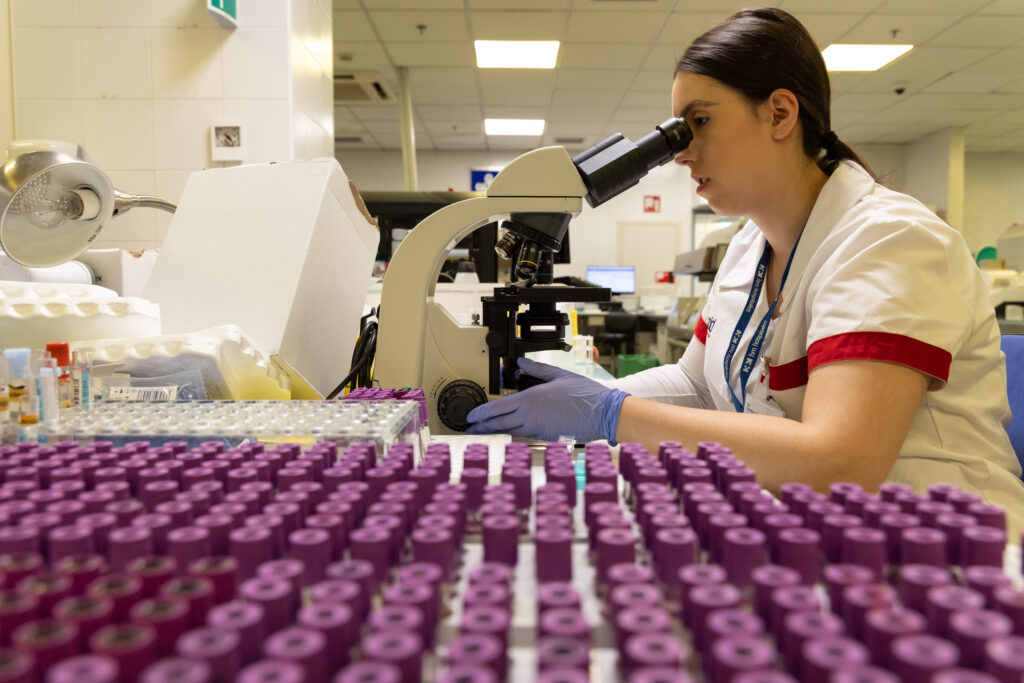Cell Therapy (CAR-T, TILs)
What is Cell Therapy?
Cell therapy is an innovative treatment that uses the patient’s own immune cells to fight cancer. Among the most advanced modalities are CAR-T cell therapies (genetically modified T cells) and TILs (tumor-infiltrating lymphocytes). These techniques aim to boost the immune system to effectively and personally identify and destroy cancer cells.
What is this procedure for?
Cell therapy is primarily used in:
- Treatment of hematological cancer: Such as leukemias, lymphomas, and multiple myeloma (especially with CAR-T).
- Solid cancers: Such as melanoma and other tumors where TILs have shown efficacy.
- Patients resistant to conventional treatments: Offers options for patients who do not respond to standard chemotherapy, radiotherapy, or immunotherapy.
- Therapeutic personalization: Serves to adapt the treatment to the molecular and genetic profile of the patient’s tumor.
Benefits of high technology in oncological robotic surgery
The procedure combines advanced biotechnology and personalized medicine techniques. Both therapies use the patient’s own immune cells, which are processed in the laboratory to enhance their ability to attack cancer. This approach seeks to overcome the evasion mechanisms that tumor cells develop against the immune system.


What is the procedure like?
The cell therapy procedure involves:
-
Preparation:
In the initial consultation, your oncologist will review your medical history and analyze the results of previous tests, such as biopsies, genetic studies, and molecular analyses. Then, a blood or tumor tissue sample will be taken to obtain the necessary immune cells. These cells will be processed in the laboratory to increase their quantity or modify their function, as occurs in CAR-T treatments.
-
During the test:
The laboratory-treated cells will be reintroduced into your body via intravenous infusion. During each session, your medical team will monitor you for possible side effects and to assess how you are responding to the treatment. The duration of the process varies depending on the type of cell therapy and your evolution, but generally includes several weeks between extraction, processing, and administration.
-
After the test:
You will be regularly monitored to assess your response and detect possible side effects. To measure the effectiveness of cell therapy, you will undergo periodic tests, such as blood tests, imaging studies, and biopsies. Then, you will review the results with your oncologist, who will adjust your treatment plan if necessary.
Recommendations for the test
It is important to inform your medical team if you have allergies to any medication or material used during the treatment. You must also follow all instructions before, during, and after the procedure to ensure your safety and the effectiveness of the treatment. If you experience symptoms such as fever, nausea, extreme fatigue, or difficulty breathing, report them immediately to your doctor.
Does it have any risks?
Cell therapy is a safe and effective treatment, but it can have side effects related to immune system activation:
- Cytokine release syndrome: An exaggerated immune system reaction that can cause fever, low blood pressure, and difficulty breathing.
- Neurotoxicity: In some cases, temporary confusion, dizziness, or seizures may occur.
- Fatigue: Feeling of extreme tiredness during treatment.
- Organ inflammation: In rare cases, the immune system can attack healthy tissues, causing inflammation in organs such as the lungs, liver, or intestines.
For your test to proceed smoothly, we ask that you arrive in advance of the indicated time. This will allow us to carry out the necessary administrative and clinical preparation.
Before the test, we will provide you with the Informed Consent, a document with important information that you must read and sign.
If your appointment is for a Magnetic Resonance Imaging (MRI), it is crucial that you inform us about the presence of pacemakers, metallic objects, prostheses (including dental ones), tattoos, or medication infusion devices, such as insulin pumps.
These diagnostic tests are very safe, but as with any medical procedure, there is a minimal possibility of incidence.